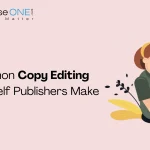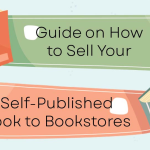In today’s digital age, having a website for writers is essential. Your personal website acts as a central hub to showcase your portfolio, build your brand, and connect with your audience.
Whether you’re a novelist, freelance writer, or blogger, a well-crafted website for writers can significantly boost your career. This article will guide you through the essential elements of creating a successful website for writers, covering everything from design and content creation to SEO and promotion.
Why Every Writer Needs a Personal Website
Establishing Your Online Presence
Establishing your online presence is crucial for success in today’s digital age. A personal website for writers acts as a central hub where you can showcase your portfolio, share your blog, and attract potential clients or publishers. It enhances your visibility, making it easier for readers to find you and your work.
Additionally, a well-designed website for writers can be a powerful tool for making money, through book sales, freelancing opportunities, and affiliate marketing.
Control Over Your Content
For writers, having a personal website gives you total control over your work. In contrast to social media platforms, where guidelines and algorithms are subject to frequent changes, your website gives you complete control over how your work is presented.
You may interact directly with your audience, present your portfolio, and use monetization techniques without interference from outside parties when you have this control, which is essential for growing your brand and generating revenue. Your website turns into the focal point of all of your writing activities.
Professionalism and Credibility
Having a personal website for writers is essential for establishing professionalism and credibility. A well-crafted site showcases your portfolio, making it easier for clients and readers to see your work.
This can lead to more opportunities for making money, as potential clients are more likely to hire someone who appears professional and credible.
Your website acts as a central hub where you can present your best work, contact information, and testimonials, enhancing your reputation in the writing community.
You may also like: How to Make Money by Writing Books: 8 Tips for Success
Key Elements of a Writer’s Website
Clear and Concise Homepage
A clear and concise homepage is crucial for a website for writers looking to build their brand and start making money. Your homepage should immediately convey who you are and what you offer. Include a brief bio, a professional photo, and links to your portfolio and services.
Avoid clutter to ensure visitors can quickly understand your value. A streamlined, well-organized homepage helps convert visitors into clients, boosting your chances of making money through your writing.
About Me Page
An “About Me” page is essential for a website for writers. It helps readers connect with you and understand your journey. Share your background, writing experience, and what inspires you.
This page can build trust and attract potential clients, aiding in making money through your writing services or book sales. Keep it engaging and personal to leave a lasting impression on visitors.
Portfolio Section
A writer’s website portfolio is a vital component for promoting their abilities and drawing in clients. It functions as a digital CV, showcasing your greatest writing in a variety of forms and genres, including blog entries, articles, and creative essays.
Writers may showcase their style and experience to publishers and employers by building a professional portfolio. This not only builds credibility but also makes it easier to get paid for freelance work, book deals, and joint ventures.
Establishing a successful writing career and creating a powerful online presence require a well-structured Portfolio section.
Contact Information
On a writer’s website, having clear and accessible contact information is crucial. This includes providing an email address or a contact form where visitors can reach you easily.
This ensures potential clients or collaborators can connect with you effortlessly, enhancing your chances of landing projects and making money through your writing.
You may also like: Top 10 Best Vampire Books of All Time
Designing Your Website
Select a Platform
When designing your website for writers aimed at showcasing your portfolio and building your brand, choosing the right platform is crucial.
Look for platforms that cater specifically to creatives, offering features like easy portfolio integration, customizable templates, and e-commerce capabilities for selling your work.
WordPress, Squarespace, and Wix are popular choices due to their user-friendly interfaces and robust design options. These platforms not only help you present your writing effectively but also provide opportunities for monetization, making money through book sales, freelance services, or courses you offer.
Selecting a Theme
When designing your website for writers, selecting a theme is crucial for showcasing your portfolio and building your brand effectively. Your theme should reflect your writing style and genre, creating a professional and cohesive look that appeals to your target audience.
Choose a theme that is easy to navigate, emphasizes visual appeal, and supports features like integrated portfolios or e-commerce tools if you plan on selling books or services directly from your site.
This strategic choice not only enhances user experience but also increases your chances of making money through your writing ventures.
Customizing the Layout
When designing your website for writers with the goal of showcasing your portfolio and making money, customizing the layout is crucial.
Tailor your site’s design to highlight your writing samples, services offered (like editing or coaching), and testimonials prominently. Use a clean, professional layout that is easy to navigate, ensuring visitors can quickly find and explore your work.
Incorporate a user-friendly interface with clear sections for blog posts, contact information, and a portfolio gallery to impress potential clients or publishers visiting your site.
Creating Compelling Content
Writing an Engaging Bio
Creating a compelling bio on your website for writers is crucial for showcasing your portfolio and building your brand. Your bio should succinctly highlight your writing expertise, unique voice, and relevant achievements.
Start with a captivating introduction that grabs attention, then mention your writing experience and genres you specialize in. Include links to published works or testimonials to establish credibility.
Focus on how your skills benefit potential clients or readers, emphasizing professionalism and personality to make a memorable impression and increase your chances of making money through your writing endeavors.
Selecting the Best of Your Work
Selecting the greatest writings that highlight your abilities and experience is essential to producing engaging material for your writer’s website. Begin by determining which of your works—published articles, polished manuscripts, or really good blog entries—are your strongest.
Emphasize pieces that show off your diversity and skill and are in line with your brand and target demographic. This carefully chosen assortment not only improves your portfolio but also draws in prospective customers or readers, increasing the likelihood that you will get paid for freelancing work or book sales.
Maintaining a Blog
Keeping up a blog that draws readers in and highlights your experience is essential to producing engaging content for a writers’ website. Maintaining a frequent blog with insightful articles that appeal to your target audience is crucial.
Write on subjects that showcase your abilities, provide helpful advice, and impart knowledge that will be useful to aspiring writers. Use social media and comments to interact with your readers and create a community around your site.
Creating high-quality material on a regular basis will improve your online visibility and raise the likelihood that you will profit from monetization techniques like affiliate marketing or digital product sales.
SEO Strategies for Writer’s Websites
Importance of SEO
Knowing SEO (Search Engine Optimisation) is essential for visibility and profitability in the world of writer’s websites. Efficient search engine optimization tactics elevate your website’s position in search engine results, simplifying the process for prospective customers or readers to locate you online.
Through the use of keywords such as “website for writers” and “making money,” you can draw in specific visitors who are interested in your offerings. This improves not just your online presence but also your ability to make money online by increasing visibility and engagement.
Keyword Research
In the realm of SEO strategies for writer’s websites, effective keyword research is crucial, especially when targeting key phrases like “website for writers” and “making money.”
Finding terms and phrases that prospective customers might use while looking for services linked to exhibiting portfolios and developing their writing brands is part of doing in-depth keyword research.
Through comprehension of these terms, authors can enhance their material to draw in pertinent readers, raise their search engine rankings, and eventually expand their website’s revenue potential.
On-Page SEO Techniques
When setting up a website for writers aimed at showcasing portfolios and boosting income, employing effective on-page SEO techniques is crucial. This involves optimizing each page with relevant keywords like “website for writers” and “making money” strategically placed in titles, headings, and throughout the content.
Incorporating meta descriptions, alt text for images, and internal links also enhances visibility. By focusing on keyword research and creating high-quality, informative content, writers can attract targeted traffic and improve their site’s ranking on search engine results pages, ultimately boosting their online presence and earning potential.
Off-Page SEO Strategies
Off-Page SEO tactics are essential for enhancing a website’s online presence and reputation, particularly for writers who want to establish their online identities and make money from them.
These tactics entail actions taken off the website itself, like constructing high-quality backlinks from other reliable websites, interacting on social media, and taking part in online writing communities.
By doing this, authors may improve the authority and reliability of their website in the eyes of search engines like Google, which will eventually increase traffic and attract more potential customers to their services and portfolio.
You may also read: Narrative Structure: Definition, Examples, Writing Tips
Building Your Brand Through Your Website
Consistent Branding Elements
Building a successful website for writers involves integrating consistent branding elements throughout your platform. These elements, such as your logo, color scheme, and typography, should reflect your writing style and personality.
Consistency across your website reinforces your brand identity, making it memorable to visitors. When done effectively, this cohesive branding not only enhances your professional image but also builds trust with your audience.
It’s a crucial step in showcasing your portfolio and ultimately making money from your writing endeavors.
Developing Your Unique Voice
Building your brand through your website involves developing your unique voice, which is crucial for standing out as a writer. Your voice is your distinct style of expression that reflects your personality and perspective.
It’s what makes your writing authentic and memorable to readers. When creating a website for writers, focus on showcasing your portfolio and highlighting your unique voice across your content.
This not only attracts potential clients and readers but also enhances your chances of making money through your writing endeavors.
Engaging with Your Audience
Engaging with your audience on your website for writers is crucial for building your brand and making money. By regularly updating your blog with helpful tips, writing insights, and personal stories, you can attract readers who share your passion for writing.
Encourage interaction through comments and social media links to foster a community around your work. Respond promptly to feedback and questions to show your dedication and expertise, turning visitors into loyal followers who are more likely to explore your services and purchase your books or courses.
Promoting Your Website
Social Media Integration
For writers who want to make more money from their writing and increase their internet profile, social media integration is essential. Connecting your website to social media sites like Facebook, Twitter, and Instagram will help you reach a wider audience and increase traffic to your website.
With this integration, you may interact with readers and possible clients directly, discuss writing updates, and exhibit your portfolio. Effective use of social media supports your route to financial success through book sales, freelance work, and sponsored content, among other avenues for monetization. It also increases the visibility of your brand.
Email Marketing
Email marketing is a powerful tool for promoting your website for writers and maximizing your earnings. You may keep interested readers and potential customers updated about new services, special deals, and helpful material by creating an email list of them.
You can present your writing examples, promote your experience, and display your portfolio through this direct contact route. Create engaging newsletters that your readers will want to read.
This will increase website traffic and your prospects of earning money from freelance work, book sales, and other writing services.
Networking and Collaborations
In promoting your website for writers and making money, networking and collaborations are essential. Making connections with other authors, editors, and business people can increase your exposure and opportunities.
Work together on joint initiatives, guest blogs, or virtual events to expand your following and establish credibility. Moreover, networking gives you access to publishers or clients who could be interested in your writing, increasing the likelihood that you can successfully monetize your writing abilities. Developing these connections can result in long-term collaborations and expansion of your writer’s brand and portfolio.
You may also read: Plot Twists Vs Red Herring: Understanding the Difference
Tools and Resources for Building a Writer’s Website
Website Builders
When creating a website for writers, using website builders can be a practical choice. Even if you’re not tech-savvy, these tools’ user-friendly interfaces make the process of creating and maintaining your website easier.
Website builders that offer themes specifically designed for author websites and portfolios, such as Wix, Squarespace, and WordPress.com, make it simple to present your work and create a credible online presence.
Through the use of these channels, authors can draw in readers, possible employers, and publishers, increasing their prospects of earning money from speaking engagements, freelancing work, and book sales.
SEO Tools
When it comes to creating websites for writers, Making use of SEO tools is essential for increasing visibility and drawing in new readers or customers. It is simpler for writers to be found online when their website is optimized for search engines like Google, thanks to SEO tools.
These programmes track website performance, analyze keywords, and recommend changes to the content structure. You may boost traffic, establish a stronger online presence, and eventually raise your chances of earning money through more customer engagements and visibility by including efficient SEO tactics into your writing website.
Design Resources
When creating a website for writers aimed at showcasing your portfolio and boosting your brand, utilizing design resources is crucial. These tools, which ensure your website appears professional and runs well, include themes, plugins, and templates designed specifically for writers.
Seek themes that successfully showcase your work with features that are customisable and have clear layouts. Plugins can improve features like social network integration, contact forms, and portfolio displays—all of which are essential for drawing clients and generating revenue from your writing projects.
Common Mistakes to Avoid
Overloading with Information
While giving your visitors a wealth of information about you and your job is crucial, don’t overburden them with it. Maintain a clear and concise website so that users may quickly locate what they’re looking for.
Neglecting Mobile Optimization
Making sure your website is responsive is essential, as more people are accessing the internet through mobile devices. Make use of responsive design strategies to make sure your website works and looks fantastic across all platforms.
Ignoring SEO
In order to get people to visit your website, SEO is essential. If you ignore it, search results may show your site well down the list. Take the effort to understand and put SEO best practices into practice to increase the exposure of your website.
Conclusion
Making a personal website is an essential first step for every writer who wants to establish their brand and show off their work. You may establish an appealing and professional online presence by including essential components like a well-organized portfolio, an interesting bio, and an easy-to-navigate homepage. Make use of SEO tactics to raise your profile, and interact with your followers on social media and with frequent updates.















